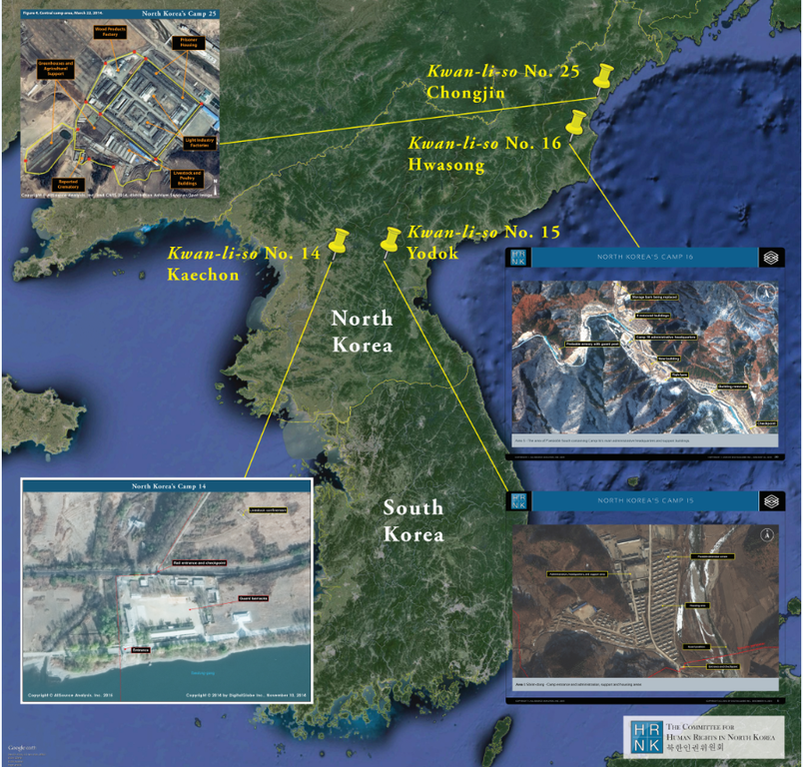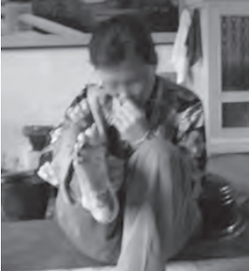Hidden Gulag Blog
HRNK staff members and interns wish to dedicate this program to our colleagues Katty Chi and Miran Song.
A native of Chile and graduate of the London School of Economics, Katty became a North Korean human rights defender in her early 20s. Katty was chief of international affairs with the North Korea Strategy Center (NKSC) in Seoul from 2010 to 2014 and worked with the Seoul Office of Liberty in North Korea (LiNK) from 2019 to 2020. A remarkable member of our small North Korean human rights community, Katty brought inspiration and good humor to all. Katty passed away in Seoul in May 2020, at the young age of 32. She is survived by her parents and brother living in Chile.
A graduate of Kyung Hee University and The Fletcher School of Law and Diplomacy, Miran was a research intern at HRNK from 2012 to 2013. After graduating from Fletcher, Miran fulfilled her long-cherished dream to work in the field with international NGOs and South Korean government agencies, dedicating herself to sustainable development projects in Uganda and Ethiopia. A staunch human rights defender and passionate humanitarian, she lived her short, difficult, and meaningful life feeling blessed by the opportunity to help others. She passed away in 2022, at the young age of 31.
With the YPWP series, we endeavor to honor Katty and Miran’s life and work.
Greg Scarlatoiu
HRNK staff members and interns wish to dedicate this program to our colleagues Katty Chi and Miran Song.
A native of Chile and graduate of the London School of Economics, Katty became a North Korean human rights defender in her early 20s. Katty was chief of international affairs with the North Korea Strategy Center (NKSC) in Seoul from 2010 to 2014 and worked with the Seoul Office of Liberty in North Korea (LiNK) from 2019 to 2020. A remarkable member of our small North Korean human rights community, Katty brought inspiration and good humor to all. Katty passed away in Seoul in May 2020, at the young age of 32. She is survived by her parents and brother living in Chile.
A graduate of Kyung Hee University and The Fletcher School of Law and Diplomacy, Miran was a research intern at HRNK from 2012 to 2013. After graduating from Fletcher, Miran fulfilled her long-cherished dream to work in the field with international NGOs and South Korean government agencies, dedicating herself to sustainable development projects in Uganda and Ethiopia. A staunch human rights defender and passionate humanitarian, she lived her short, difficult, and meaningful life feeling blessed by the opportunity to help others. She passed away in 2022, at the young age of 31.
With the YPWP series, we endeavor to honor Katty and Miran’s life and work.
Greg Scarlatoiu
“Knowledge is power. Information is liberating. Education is the premise of progress, in every society.”
-Kofi Annan
About North Korea's Hidden Gulags:
|
North Korea operates two systems of arbitrary detention and political imprisonment. Both systems feature forced labor and brutal conditions, leading to high rates of deaths in detention in both systems.
|
Presumed political ideological, sociological deviations may warrant the deportation of individuals and their imprisonment in labor camps
|
|
Why is this important?The United Nation's Commission on Inquiry report establishes that North Korea systematically commits crimes against humanity.
These crimes against humanity entail extermination, murder, enslavement, torture, imprisonment, rape, forced abortions and other sexual violence, persecution on political, religious, racial and gender grounds, the forcible transfer of populations, the enforced disappearance of persons and the inhumane act of knowingly causing prolonged starvation.
Many of these violations associated with the prison camps. In the political prison camps of the Democratic People’s Republic of Korea, the inmate population has been gradually eliminated through deliberate starvation, forced labour, executions, torture, rape and the denial of reproductive rights enforced through punishment, forced abortion and infanticide.
|
Above: An infographic slideshow illustrating North Korea's gulag atrocities.
Many thanks to the Bush Institute for these graphics and information.
|
The vast majority of inmates are victims of arbitrary detention, since they are imprisoned without trial or on the basis of a trial that fails to respect the due process and fair trial guarantees set out in international law. Furthermore, many ordinary prisoners are, in fact, political prisoners, who are detained without a substantive reason compatible with international law.


